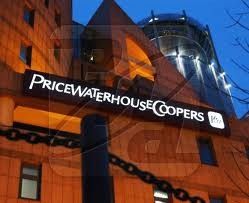PwC to come under scrutiny over role as BHS's auditors
UK accounting watchdog launches investigation into PwC's audit of BHS.

PricewaterhouseCoopers, one of the UK's big four professional services firms, has come scrutiny by the UK accounting watchdog over its role in the audit of retailer BHS. The investigation relates to PwC's audit of BHS accounts the year before it was sold off.
The investigation by the Financial Reporting Council, is specifically looking into the audit of the financial statements of BHS for the year ended 30 August 2014 — the year before the retailer was sold by Sir Philip Green's Arcadia Group. The sales saw £215m in debts being written off.
A PwC spokesman said: "We will co-operate fully with the FRC in its inquiries." PwC stepped down as BHS's auditor after the sale to Dominic Chappell-led Retail Acquisitions in March 2015.
The Financial Times said that following the collapse of BHS in April, the sale to Retail Acquisitions has come under intense scrutiny. MPs are looking into how Sir Philip sold a lossmaking business with a large pension deficit to a company run by Chappell, a former bankrupt with no retail experience.
The newspaper said the FRC's investigations comes following pressure from MP Richard Fuller who had written to its chief executive Stephen Haddrill, asking the watchdog to launch an investigation into the conduct of the directors and advisers involved in the transaction that resulted in the sale.
Fuller had expressed concerns over whether the standards that "underpin high quality actuarial practice" was followed by the auditors.
In a joint BIS/Work and Pensions committee meeting, Sir Philip told MPs that advisers to the sale, including Grant Thornton, Goldman Sachs and Olswang should be held accountable for effectively vouching for Chappell.
BHS came under administration in April about 13 months after it was sold off by Arcadia to Chappell for £1. PwC, The Guardian reports, was questioned by MPs at the hearing over its description of BHS as a going concern just days before it was sold.
At the hearing, PwC partner Steve Denison said: "The existing management team was trying to turn the business around, and had some success in driving costs down and reducing cash requirements; the cash requirements were lower than the losses shown; and there was a deal which would bring extra cash from the vendor and new cash from the purchaser. Compared with the plans, there was no material uncertainty."
© Copyright IBTimes 2025. All rights reserved.






















